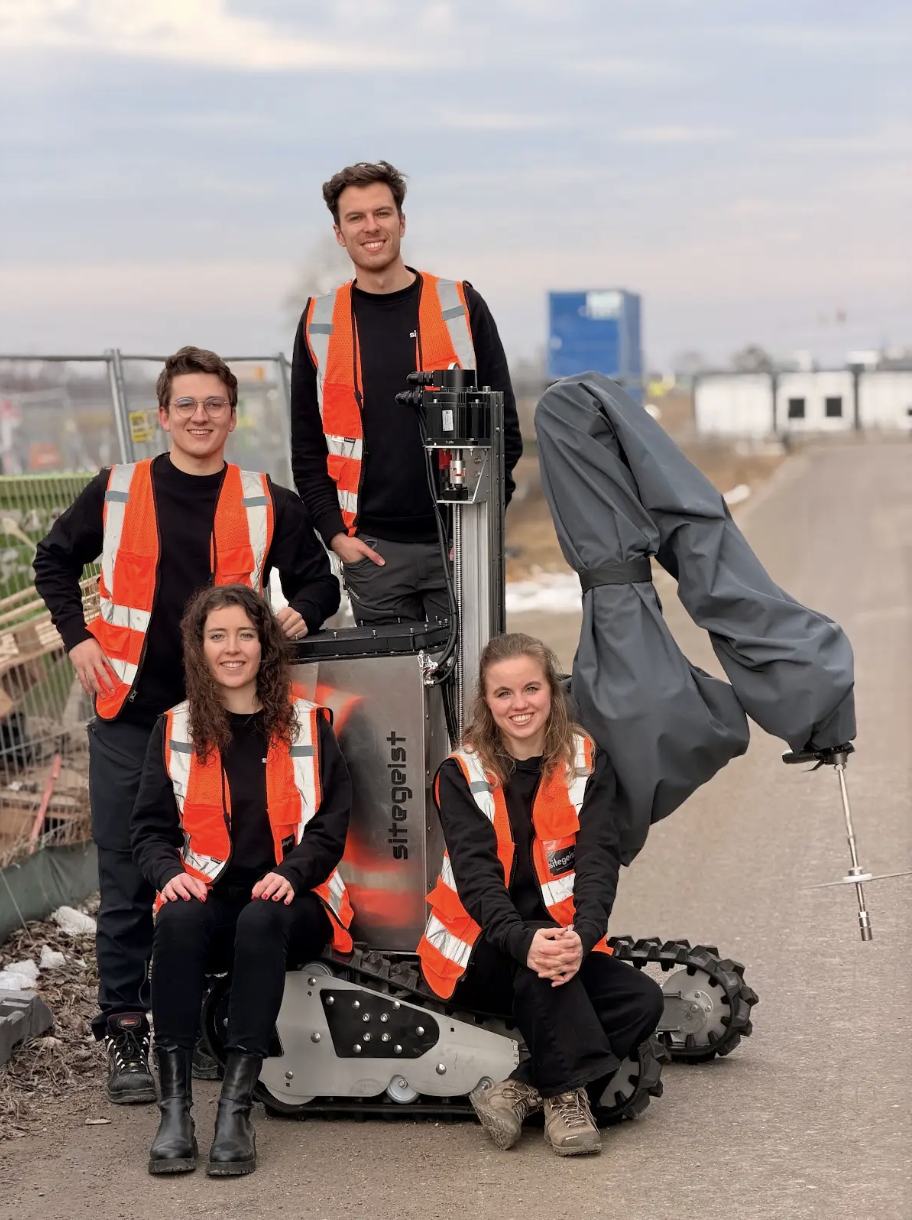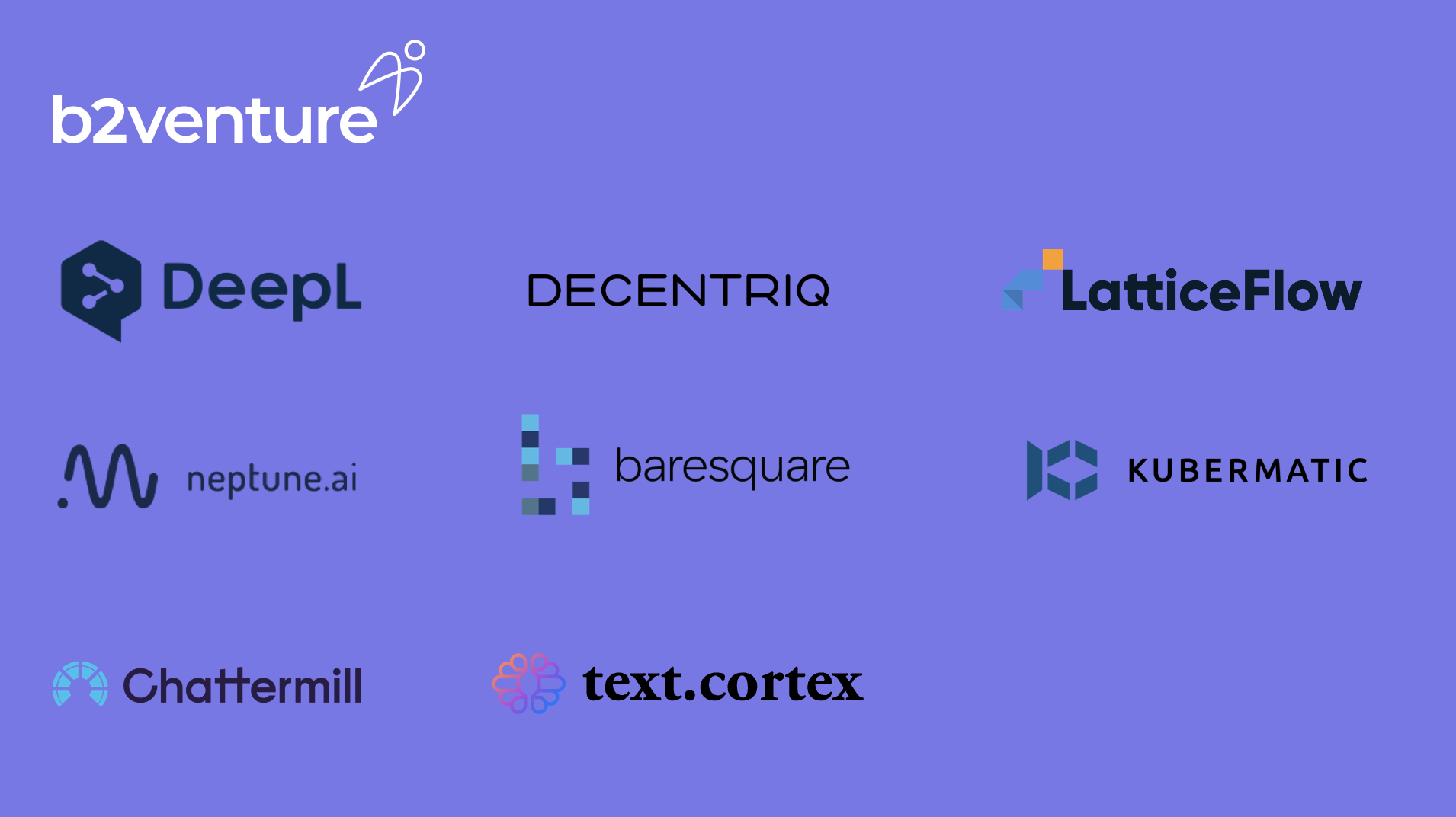Powering the Future: Exploring Innovations in EnergyTech
Powering the Future: Exploring Innovations in EnergyTech
The energy sector has become a central focal point for innovators as climate change, technological advancements, increasing geopolitical tensions, and rising energy demand make transitioning to more sustainable and efficient energy sources a high priority. Exploding energy costs, supply chain disruptions, and the need to reduce carbon emissions have helped spur the emergence of EnergyTech as a vital area of innovation and investment.

Europe’s energy crisis has acted as a powerful accelerant towards renewable energy sources. Countries heavily reliant on natural gas imports, such as Germany and the UK, have faced challenges in meeting their energy needs, amid spikes and volatility in energy prices and broad concerns about energy security. This crisis underscores the urgency of diversifying energy sources and transitioning towards cleaner, more sustainable alternatives.
At b2venture we’ve been thinking about the energy transition for a long time and see the primary drivers of innovation through: 1.) the internalization of external costs, and 2.) the digitalization of ever more areas of economic life. The proliferation of data across every aspect of society and the integration of data science, IoT, and AI will help bring down information and transaction costs close to zero for measuring and controlling the flow of information, while providing important market signals for aligning supply, demand, and prices. Our investments in companies such as Atlas Metrics, Orus Energy, Predium, and 1KOMMA5° are contributing to this trend, and there are a host of approaches that combine new technologies and novel business models and create offerings under what we are calling EnergyTech.
It is, therefore, not surprising that a new wave of startups in the energy sector have been emerging at a quickening pace, especially in Europe, where VC funding in the Energy sector rose 5% in Q1 2024 to USD 13.7bn from the same period last year. Before 2023, Energy typically ranked behind Fintech, Health and Enterprise Software by VC investment. Energy was thereby the largest category for investments in Europe, raising a total of USD 3.1bn for the fourth consecutive quarter.
Market Map EnergyTech
We’ve broken down the market for EnergyTech along two major dimensions: B2C and B2B, with the B2B side being more complex, as startups address different parts of the value chain.

The B2C Sector
On the B2C side, there is a trend towards both growing consumer awareness and demand for sustainable energy solutions. With both cost and price sensitivities shifting and new offerings that bring more choice, consumers are increasingly adopting renewable energy sources such as solar panels, heat pumps, and electric vehicles to reduce their carbon footprint and save on both short-term and long-term energy costs. A shift towards a more integrated or full-stack approach has emerged to address bottlenecks in the installation process and make solar energy more affordable for consumers. Companies offering smart home energy management systems, energy-efficient appliances, and carbon offsetting services are also gaining popularity among environmentally-conscious consumers.
In Germany, several startups have taken the lead in overcoming installation bottlenecks. Enpal operates on a full-stack tech and financing model, where customers can lease the hardware to avoid high installation costs and rent the system for a fixed time period with an option to buy at the end or buy up front with a financing option provided by Enpal to take advantage of tax incentives. Zolar follows a marketplace approach working with third-party installers. Our portfolio company 1KOMMA5° combines a one-stop-shop approach for buying and installing solar, EV chargers and heat pumps with an electricity marketplace powered by a software-based energy management system, called Heartbeat, and a dynamic pricing feature, called Dynamic Pulse, that optimizes user experience and consumption patterns of the customer. 1KOMMA5°’s Heartbeat energy management system is also designed to be interoperable with a variety of third party systems, allowing the company to onboard more clients beyond their own install base and offer the company’s IoT software to a broader market segment. These companies not only focus on installation but also aim to build a comprehensive technology layer that enables energy management and demand response, offering additional savings for customers and revenue streams for the companies themselves.
As some customers are currently experiencing long waiting times to consult with renewable energy consultants as an initial step towards installing new systems, several players have focused on accelerating uptake by offering an end-to-end platform for a holistic digital energy renovation. Startups like 42watt, Novo, Enter or DSB digitize the energy advisory process and enable end customers to establish a custom renovation roadmap including subsidy applications, which can be complicated for end consumers to negotiate on their own.
While the ROI for energy renovation can be significant for homeowners, many struggle with the large upfront costs. Hence, several startups focus solely on the financing side of things. For example, Cloover and Klimafin are currently partnering with renewable energy professionals to make sustainable home upgrades simple and affordable with flexible payment options.
The B2B Sector
In the B2B sector, there are two main categories startups are trending toward: either targeting specific industries and enterprise customers or OEMs and installers. Companies of different sizes to SMEs are looking to improve energy efficiency, reduce waste, and transition to cleaner energy sources to meet both sustainability goals and regulatory requirements, as well as take advantage of falling costs for renewables. Energy management software, IoT devices for energy monitoring, grid optimization technologies and novel digital energy procurement solutions are in high demand among businesses seeking to enhance their operational efficiency and reduce environmental impact.
Over the past 18 months, we’ve seen several startups focus on energy management for SME and industrial customers, enabling them to save energy costs and limit CO2 emissions. Usually these players start by analyzing the current energy consumption and give granular recommendations on how to maximize savings. Startups with this go-to-market include Ecoplanet, Nista or Kerith. We also see players such as Trawa tackling the space from a procurement perspective offering green energy traffic with direct contracts from solar and wind parks. Additionally, there are players such as one of our latest investments, Orus Energy who focus on demand flexibility as their go-to-market approach. Eventually, all these players will expand their offering in each of the named areas and in the long-term become the go-to-platform for green and sustainable energy management.
We’ve also seen several startups equipping existing installers with SaaS solutions to make them more productive. From a horizontal perspective, other startups are building a full operating system to make installer operations more efficient with the value proposition of providing an all-in-one software solution for renewables. Features include a wide variety from CRM functions, to calculation and quotation, planning, and invoicing, such as Reonic, Opus Flow, and Solteo. Simultaneously, there are startups pursuing a more verticalized approach, such as SHK Power, or Spruce, which are building point-of-sale solutions and primarily offering a seamless sales experience with an end-to-end solution covering lead generation, qualification, and quoting.
Another path is to target OEMs (i.e. utilities). Utility companies often operate with relatively low-profit margins as they only sell electricity, have tremendously high customer churn rates, and have high cost structures due to legacy systems. Hence, startups like Kassandra Energy, Electryone or Riverslate act as a energy-as-a-service provider, helping utilities offer better products and services like demand flexibility, customer intelligence, and home energy management. This allows utilities to create new revenue streams while enhancing their offerings to customers.
Remaining Challenges
Despite the explosive growth in the Energytech space, several challenges persist. One major challenge is the integration of renewable energy sources into existing energy infrastructure. Issues such as grid stability, storage capacity, and regulatory barriers pose obstacles to the widespread adoption of renewable energy technologies. Improving energy storage capabilities, enhancing grid flexibility, and streamlining regulatory frameworks are critical areas that require innovation and investment.
Yet the EnergyTech space presents exciting opportunities for innovation, investment, and sustainability. Addressing current energy challenges through technological advancements, market-driven solutions, and strategic investments can drive the transition towards a more resilient, efficient, and environmentally friendly energy ecosystem.
If you are a European startup building something in the energy space, whether you are at the ideation stage or have already validated your product in the market, we are eager to connect with you: johanna.junkermann@b2venture.vc
The energy sector has become a central focal point for innovators as climate change, technological advancements, increasing geopolitical tensions, and rising energy demand make transitioning to more sustainable and efficient energy sources a high priority. Exploding energy costs, supply chain disruptions, and the need to reduce carbon emissions have helped spur the emergence of EnergyTech as a vital area of innovation and investment.

Europe’s energy crisis has acted as a powerful accelerant towards renewable energy sources. Countries heavily reliant on natural gas imports, such as Germany and the UK, have faced challenges in meeting their energy needs, amid spikes and volatility in energy prices and broad concerns about energy security. This crisis underscores the urgency of diversifying energy sources and transitioning towards cleaner, more sustainable alternatives.
At b2venture we’ve been thinking about the energy transition for a long time and see the primary drivers of innovation through: 1.) the internalization of external costs, and 2.) the digitalization of ever more areas of economic life. The proliferation of data across every aspect of society and the integration of data science, IoT, and AI will help bring down information and transaction costs close to zero for measuring and controlling the flow of information, while providing important market signals for aligning supply, demand, and prices. Our investments in companies such as Atlas Metrics, Orus Energy, Predium, and 1KOMMA5° are contributing to this trend, and there are a host of approaches that combine new technologies and novel business models and create offerings under what we are calling EnergyTech.
It is, therefore, not surprising that a new wave of startups in the energy sector have been emerging at a quickening pace, especially in Europe, where VC funding in the Energy sector rose 5% in Q1 2024 to USD 13.7bn from the same period last year. Before 2023, Energy typically ranked behind Fintech, Health and Enterprise Software by VC investment. Energy was thereby the largest category for investments in Europe, raising a total of USD 3.1bn for the fourth consecutive quarter.
Market Map EnergyTech
We’ve broken down the market for EnergyTech along two major dimensions: B2C and B2B, with the B2B side being more complex, as startups address different parts of the value chain.

The B2C Sector
On the B2C side, there is a trend towards both growing consumer awareness and demand for sustainable energy solutions. With both cost and price sensitivities shifting and new offerings that bring more choice, consumers are increasingly adopting renewable energy sources such as solar panels, heat pumps, and electric vehicles to reduce their carbon footprint and save on both short-term and long-term energy costs. A shift towards a more integrated or full-stack approach has emerged to address bottlenecks in the installation process and make solar energy more affordable for consumers. Companies offering smart home energy management systems, energy-efficient appliances, and carbon offsetting services are also gaining popularity among environmentally-conscious consumers.
In Germany, several startups have taken the lead in overcoming installation bottlenecks. Enpal operates on a full-stack tech and financing model, where customers can lease the hardware to avoid high installation costs and rent the system for a fixed time period with an option to buy at the end or buy up front with a financing option provided by Enpal to take advantage of tax incentives. Zolar follows a marketplace approach working with third-party installers. Our portfolio company 1KOMMA5° combines a one-stop-shop approach for buying and installing solar, EV chargers and heat pumps with an electricity marketplace powered by a software-based energy management system, called Heartbeat, and a dynamic pricing feature, called Dynamic Pulse, that optimizes user experience and consumption patterns of the customer. 1KOMMA5°’s Heartbeat energy management system is also designed to be interoperable with a variety of third party systems, allowing the company to onboard more clients beyond their own install base and offer the company’s IoT software to a broader market segment. These companies not only focus on installation but also aim to build a comprehensive technology layer that enables energy management and demand response, offering additional savings for customers and revenue streams for the companies themselves.
As some customers are currently experiencing long waiting times to consult with renewable energy consultants as an initial step towards installing new systems, several players have focused on accelerating uptake by offering an end-to-end platform for a holistic digital energy renovation. Startups like 42watt, Novo, Enter or DSB digitize the energy advisory process and enable end customers to establish a custom renovation roadmap including subsidy applications, which can be complicated for end consumers to negotiate on their own.
While the ROI for energy renovation can be significant for homeowners, many struggle with the large upfront costs. Hence, several startups focus solely on the financing side of things. For example, Cloover and Klimafin are currently partnering with renewable energy professionals to make sustainable home upgrades simple and affordable with flexible payment options.
The B2B Sector
In the B2B sector, there are two main categories startups are trending toward: either targeting specific industries and enterprise customers or OEMs and installers. Companies of different sizes to SMEs are looking to improve energy efficiency, reduce waste, and transition to cleaner energy sources to meet both sustainability goals and regulatory requirements, as well as take advantage of falling costs for renewables. Energy management software, IoT devices for energy monitoring, grid optimization technologies and novel digital energy procurement solutions are in high demand among businesses seeking to enhance their operational efficiency and reduce environmental impact.
Over the past 18 months, we’ve seen several startups focus on energy management for SME and industrial customers, enabling them to save energy costs and limit CO2 emissions. Usually these players start by analyzing the current energy consumption and give granular recommendations on how to maximize savings. Startups with this go-to-market include Ecoplanet, Nista or Kerith. We also see players such as Trawa tackling the space from a procurement perspective offering green energy traffic with direct contracts from solar and wind parks. Additionally, there are players such as one of our latest investments, Orus Energy who focus on demand flexibility as their go-to-market approach. Eventually, all these players will expand their offering in each of the named areas and in the long-term become the go-to-platform for green and sustainable energy management.
We’ve also seen several startups equipping existing installers with SaaS solutions to make them more productive. From a horizontal perspective, other startups are building a full operating system to make installer operations more efficient with the value proposition of providing an all-in-one software solution for renewables. Features include a wide variety from CRM functions, to calculation and quotation, planning, and invoicing, such as Reonic, Opus Flow, and Solteo. Simultaneously, there are startups pursuing a more verticalized approach, such as SHK Power, or Spruce, which are building point-of-sale solutions and primarily offering a seamless sales experience with an end-to-end solution covering lead generation, qualification, and quoting.
Another path is to target OEMs (i.e. utilities). Utility companies often operate with relatively low-profit margins as they only sell electricity, have tremendously high customer churn rates, and have high cost structures due to legacy systems. Hence, startups like Kassandra Energy, Electryone or Riverslate act as a energy-as-a-service provider, helping utilities offer better products and services like demand flexibility, customer intelligence, and home energy management. This allows utilities to create new revenue streams while enhancing their offerings to customers.
Remaining Challenges
Despite the explosive growth in the Energytech space, several challenges persist. One major challenge is the integration of renewable energy sources into existing energy infrastructure. Issues such as grid stability, storage capacity, and regulatory barriers pose obstacles to the widespread adoption of renewable energy technologies. Improving energy storage capabilities, enhancing grid flexibility, and streamlining regulatory frameworks are critical areas that require innovation and investment.
Yet the EnergyTech space presents exciting opportunities for innovation, investment, and sustainability. Addressing current energy challenges through technological advancements, market-driven solutions, and strategic investments can drive the transition towards a more resilient, efficient, and environmentally friendly energy ecosystem.
If you are a European startup building something in the energy space, whether you are at the ideation stage or have already validated your product in the market, we are eager to connect with you: johanna.junkermann@b2venture.vc

The Author

Johanna Junkermann
Investment Manager
Johanna Junkermann is Investment Manager and part of the b2venture Fund team.
Team






.jpg)












.png)




.jpg)
-min.png)


.jpg)













































.jpg)





















